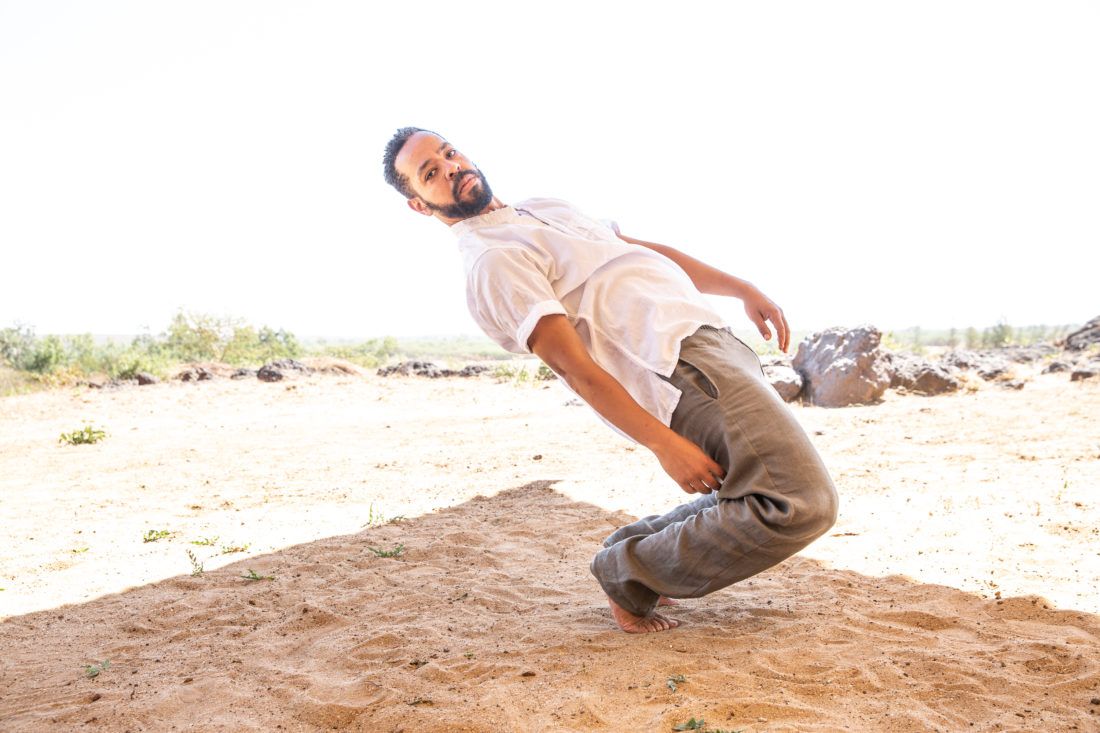“I’m not here anymore for just pretty dance,” Jamal Jackson on Power of Dance


“I’m not here anymore for just pretty dance,” Jamal Jackson, the founder of the Brooklyn based Jamal Jackson Dance Company said, as we talked about how he and his dancers have adapted to the changing times, how the Black Lives Matter protests have affected his work, and what he thinks the industry will look like going forward.
Jackson has been blending contemporary American and traditional West African dance techniques to create something new. Almost all of the works Jackson creates are geared towards “redefining community” — what it means to be in a community, and what ideologies come along with it. In the past few years, they have been pushing further into the realm of social justice, with the aim of encouraging conversations through their work.
Five years ago, his company created a piece based on the O.J. Simpson trial and the way in which different people responded to the incidents. In that work, there was talk of police violence and inequity, partially based on Eric Garner’s death. They performed the work in the park near where he was murdered — “it was inviting other people’s voices, and inviting a conversation. I think {artists} are seeing that they can’t just stay away from that in their art anymore — when you have any kind of platform, why do you have it and what are you doing with it?”
Recently, they created a piece entitled Rob Day, which explored people’s connection with firearms from the perspective of a gun, as well as grEeneR grASsEs, which explores “flight, hope and the value we place on our homeland.”
Jackson strives to create a dialogue about issues he finds important, and make people investigate their beliefs through his works, “work that asks questions and gets people to ask questions,” he says.
“I think the idea of how people are creating content is changing,” Jackson said. The dance community is moving into a different era, one full of more solos than ever before. The world are also moving into a new period of performance, with the rise of dance on social media “instead of paying upwards of however many dollars to get into Lincoln Center there is now this press of how can we connect and get this content out to different people.”

Jackson is currently working on a new solo interpretation of the Rite of Spring choreographed on Dana Thomas, the company’s assistant director. Their aim is to bring the Stravinsky ballet from 1913 into the contemporary age and to put it in conversation with the protests that have been happening all over the United States — asking the question “are you comfortable with our nation and our communities looking vastly different and maybe not having your comforts if we are not to sacrifice these bodies?”
The dance world is trying to stay alive, to stay relevant in this newly evolving increasingly digital age — which he thinks can cause some of the magic and connection that forms during a live performance to be lost. “I’m trying to get my mind back into {the pre-pandemic} places,” with rehearsals starting back up and the world easing into its new reality, artists have to find ways to embrace the new normal. But, “there is constant anxiety to handle things because everything is changing so quickly.”
Jackson feels the performance industry will inevitably be altered by the pandemic — in ways that we cannot foresee — but, he truly believes that it will bounce back, and in the end, everything will work out. “Even though this is a difficult time on all fronts, I do think we are going to come out of this.”




